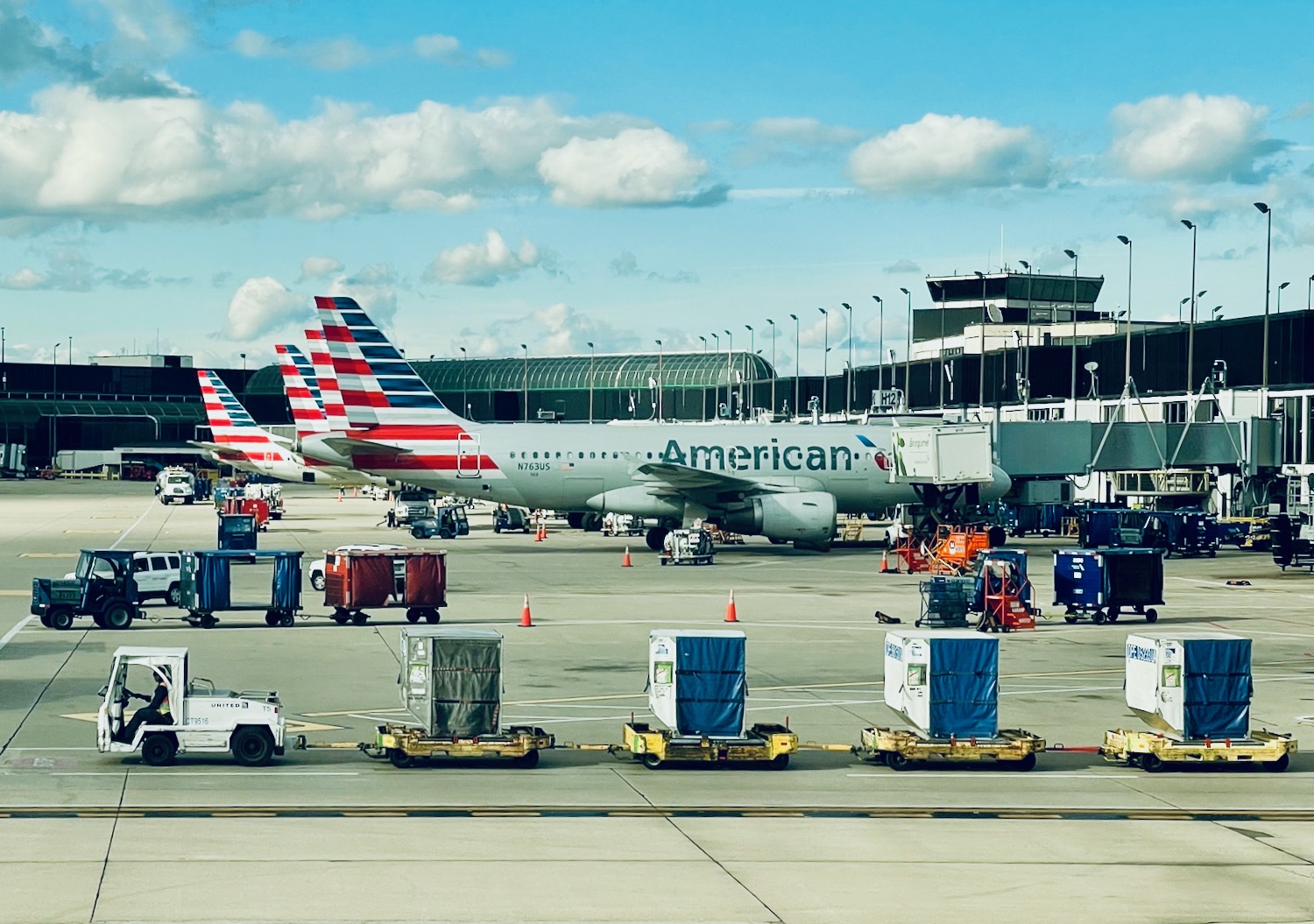
The U.S. Department of Transportation (DOT) has proposed new consumer protections for airline customers that seek to encourage transparency in terms of pricing. Are such protections necessary or a step too far?
DOT Proposes Additional Airline Consumer Protections
Under the proposed rule, airlines and travel search websites would have to disclose upfront—the first time airfare is displayed:
- checked baggage fees (for first and second bag)
- carry-on fees
- family seating fees
- change and cancellation fees + policies
The 24-hour hold or cancellation policy would also have to be displayed on the final purchase page.
As U.S. Transportation Secretary Pete Buttigieg explains,
“Airline passengers deserve to know the full, true cost of their flights before they buy a ticket. This new proposed rule would require airlines to be transparent with customers about the fees they charge, which will help travelers make informed decisions and save money.”
Gary Leff of View From The Wing has provided an excellent analysis of this proposal that I need not regurgitate here. But if your attention span is not that long, I think the most important part is:
- This proposal covers desktop and mobile websites, but not explicitly airline or travel agency apps
- Airline agents would have to verbally provide this information if booking over the phone
My Concerns Over The Proposed Legislation
Leff is concerned that pro-consumer sites like Expert Flyer, which display fare information but do not sell tickets, would fall under this regulation and may be forced offline if unable to comply with the display requirements.
I’m not so concerned. While it is true that “metasearch sites that do not sell airline tickets but display airline flight search options directly to consumers” are required to display this info under the proposal, I would not put ExpertFlyer in the same category as a metasearch site like Google Flights, Kayak, or Skipplagged that may not sell tickets, but provide a deep link in order to do so directly from their site.
Websites like ExpertFlyer or even ITA Matrix do not necessarily facilitate booking, which seems to be the intent of this requirement. I am hopeful this would be clarified before a final rule is issued.
Leff is also concerned that these regulations will force online travel agencies like Expedia or Orbitz to sell ancillaries for airlines and also that the requirement to verbally disclose fee information will clog phone lines and lead to even longer hold times.
While I do not dismiss either concern, my larger concern is the practicality of displaying seating information like “fees for children to be assigned seats next to an accompanying adult.” Well, that really depends, doesn’t it? Seat pricing is dynamic and will vary based on the flight and the specific seat assigned. It’s helpful information to know, especially when evaluating whether to buy a basic economy ticket that does not come with advance seat assignments, but I don’t see how this information can be practically displayed.
I am not in the “families have a right to sit together” camp. If you knowingly purchase basic economy tickets, then you take the risk of being separated from your family. Any sensible family would not buy these cheap tickets and are shameful for complaining if they knowingly accept the risk to save a few bucks (and all airlines clearly disclose the risks).
Same story for bags, no? What if you have elite status or an airline co-branded credit card? Your fees might be lower than Joe Traveler. Disclosing “worst case” fees may be sufficient, but undermine the sort of accuracy the DOT is aiming for.
Transparency Should Not Be Controversial
Overall, I think capitalism flourishes with transparency…a market cannot thrive when so much time is wasted trying to ascertain pricing. Bait and switch should not be protected under a misunderstanding of what a free market is.
In that sense, I support these changes…in theory. But the devil, as always, will be in the details and I can already see the difficulty in disclosing fees in such a way that is clear to consumers and also practical for online travel agencies.
The worst thing would be for online travel agencies to stop selling certain airline tickets because of an inability to display the requisite information. That would harm consumers and hinder competition.
However, I am cautiously optimistic we will see a sensible compromise in which consumers can carefully weigh what their “all-in” price truly is from the moment they shop for flights. That saves time and encourages a free exchange and therefore should be lauded by all sides.
CONCLUSION
Under new regulation proposed by the DOT, airlines and travel agencies would need to display more information on change, cancellation, seating, and baggage fees upfront. Theoretically, this will be helpful, though it must be accomplished with key stakeholders in such a way that the requirement does not end up hindering competition by making disclosure requirements so burdensome as to hurt helpful tools like ExpertFlyer or Google Flights.
Finally, I do think the more pressing matter is mandating that hotels display all-in fees from the very first page of search results. With resort fees and various taxes often greatly inflating “base” hotel prices, this is a far greater concern for me in promoting transparency.




Matthew, as a fellow LAX United based traveler, it is disappointing that you don’t post about United resuming LAX-MEL (which is a very significant route and shows a ton of commitment to LAX) or the new LAX-HND route coming in January, yet you post about Delta and praise what they are doing at LAX, when the truth is everyone knows the bulk of Delta’s new LAX routes will fail and be canceled within a few years, if not sooner.
United domaines Tokyo, the HND route will fail, the Tahiti route will fail, and the LHR route will likely fail, because although they have a partner at LHR, Virgin does not offer connection for Delta the same way BA offers connections for America. The Paris route is the only one here that stands a chance.
I see what they’re trying to do, but it’s not that hard to see those other fees while booking maybe except change/cancellation fees on airlines’ websites. In addition, a lot of those fees are usually add-ons indicated and while booking a fare, they show what’s included and what’s not included. US carriers at least have a form of a 24 hour cancellation policy in place- even LCCs like Spirit.
Expert Flyer and ITA Matrix are great because you can look up airfares without it having an effect on the airfare pricing algorithm. The algorithm is heavily dependent on the number of searches on places that sell tickets, and if you peruse a flight that’s 6 months out a few times a day, that airfare goes up because the algorithm perceives it as demand. It’s not worth the risk losing Expert Flyer, ITA Matrix, and other websites for a smidgen more transparency, but I could be in the minority.
Now if the DOT were going to implement something similar to EU261, then I would be fully on board.
“The algorithm is heavily dependent on the number of searches on places that sell tickets”
This is a common misconception, but is not true. Pricing is based on remaining inventory, some characteristics of the booking (day of week, length of stay, etc), and yield management decisions. The IT systems required to get search counts from third-party systems are beyond the scope of current airline pricing abilities.
TIL something new. Thanks for this.
Hear hear. This is just lipstick on a pig. I’m sick of Delta’s poor Covid management causing multiple banks to shrink to three and producing 5+ hours of layover, on top of cancelled flights because they “retired” so many crew. Most recently had UA cancel a TATL flight 3 hours before departure because they had to take the plane out of service. Airlines received billions in government funding over the years and yet have not ushered in a single pro-consumer aspect. This administration- and all future ones – need to get off their asses and punish airlines for horrid performance that fucks passengers. It’s getting ridiculous.
The problem with our goverment model is the regulator is controlled by a politician that is open to taking bribes from the airlines and write sweetheart legislation for them.
Just like labor pays monthly fee for union dues and the union takes on the airline, every airline ticket should have an added small fee used to fund an organization that will bribe the politicians the same way corporations do and get some equality for the consumers in terms of regulations with a bite.
Come on , Matt. You need to look a the actual language of the proposed regulation before commenting on it instead of summaries. How is expert flyer going to qualify as a “direct air carrier, indirect air carrier, an agent of either, or a ticket agent”? No court or ALJ would consider them as such.
I read it and linked to it above.
https://www.transportation.gov/sites/dot.gov/files/2022-09/Ancillary%20Fees%20NPRM.pdf
I was addressing Gary’s concern.
According to the NPRM, proposed requirements “applies to: (1) U.S. air carriers; (2) foreign air carriers; (3) ticket agents that sell airline tickets, whether traditional brick-and-mortar travel agencies, corporate travel agents, or online travel agencies; and (4) metasearch sites that do not sell airline tickets but display airline flight search options directly to consumers ”
The only limiting reference to “direct air carrier, indirect air carrier” et al is under Statements of General Policy, in a list of revisions to code, to update §399.84(a). You seem to believe that if the Department chose to take an enforcement action against a site that displays flight search options directly to consumers that did not sell travel – which DOT says explicitly are covered – that such a site would ultimately litigate and prevail in final judgment.
It is very rare for any business, even an airline, to litigate a claim rather than settle and submit to DOT jurisdiction.
I want to make sure the rules are improved and clearly written so that there isn’t a chilling affect on innovative sites that benefit consumers. Since the rule gives the power to airlines to decline to provide the data that is required to be displayed to any site that it does not choose to have a commercial relationship with, only airline-approved sites may be legal under these guidelines. That’s not good.
Frankly, US airlines are just about the most transparently priced business you will find out there. The price show through the booking path is inclusive of taxes and fees- what you see is what you pay, if you’re willing to do away with bags, ASR, etc. The basic economy booking process is even more transparent! How can someone book BE on a US airline’s website and claim to have thought they were entitled to seats or a carry-on bag?
I’d much rather see the DOT’s efforts focused towards sectors with much shadier pricing practices, such as rental cars, hotels, or AirBNB.
Agree with you 100%. Infinitely more consumers are misled by hotels and rental car companies than airlines.
You basically are arguing that nothing should be done for airlines because hotels, car rental providers etc., are worse? I don’t disagree that hotels and car rental providers should be subject to similar obligations… but that’s hardly a reason to let airlines do nothing. The need for this is easily found if you just do a google flights search and see if that’s the price you eventually have to pay. It’s rarely the same.
Something should be done but this proposed rule ain’t it. Maybe they need to investigate why they took billions from the taxpayers and their staffing and operational issues still suck compared to pre-Covid. Maybe search for the root cause instead of looking at the symptoms.
Airline fares, at least on legacy carriers, are very transparent – you see a fare price on their site, that’s what you pay, taxes and fees included. You get warning prompts on basic economy about bag fees and other add ons and potential limitations. I guess it gets a bit murkier with ULCCs and their a la carte pricing.
They should focus on hotel pricing, now that is borderline predatory. Not uncommon to have a $200 room rate for 3 nights total to $800+, plus more taxes and “resort fees” that they like to pile on top of that. Once again, Brandon and Buttigieg misses the mark.
I guess in your mind it better to do nothing like previous administration than to try something that might not be perfecct
“I guess in your mind it better to do nothing”
I literally just posted “They should focus on hotel pricing” you utter imbecile.
No you dolt. You said they missed the mark. They are focusing on airlines and their fees that believe or not, some people book a flight and forget about it not realizing they arent getting everything they think. If you want them to look at hotels then call your congressman, thats not what this is about. Hotels and airlines are different industries in case you werent aware. You just wanted to take a pot shot at the administration that is at least trying to help consumers.
Well, Brandon and Buttigieg miss the mark in many things, from foreign policy, supply chain crises, scorching inflation, border security, so I’m right about that. It tickles me that you’re triggered. I actually enjoy it. It’s hilarious to me that your only retort has been and only been “Orange Man bad.” How shallow.
But that’s besides the point. Hotels fees are more stealthy and predatory, but I guess it would be true that it wouldn’t really be DOT’s realm anymore.
Why do all MAGA people talk the same? It’s a genuine question. I agree with Billy Bob. There’s nothing wrong with doing this because it’s more transparent for consumers. I also agree with you that they should be putting similar regulations on hotel and rental car companies. Some progress is better than none, so I’m fine with focusing on airlines for now.
I enjoy your blog so much, but Sunday posts have been consistently declining, and diminish the great work you’ve done. I hope you consider finding another writer for Sunday posts, or maybe you can do the writing also.
Thank you very much!
Gary Leff has no idea what he is talking about unless he is posting about trips reports or mileage tricks. I do not agree with this legislation , but it would have ZERO impact on expert flyer.
As ExpertFlyer doesn’t even price or apply fares to specific flights, we agree that this wouldn’t affect us.
Thanks for weighing in.
“Overall, I think capitalism flourishes with transparency”
Come on… We’re talking about the airline industry in the United States. Who said anything about capitalism?
Seriously, though. My #1 issue is when searching flights in the AA app, the default price you see is for basic economy with no option to hide those fares. It’s frustrating and misleading, and this appears to not do anything to fix it.
This is good, but pretty unnecessary. Airlines are generally already extremely really good and fair about upfront pricing and won’t have a major problem following this. The DOT/Administration should have used this energy to rather force the hotels to do the same. All the hidden booking fees, resort fees and others are a true annoyance of all travelers
Airlines are already fairly transparent about their fares and fees. Plus, anyone who’s consumed even a shred of news media over the past 10+ years knows that most airlines charge a fee for checked baggage, seating, etc. even if they can’t quote the exact policy or price offhand. At the risk of sounding like a Republican, I don’t think it’s unfair to expect consumers to take on a smidgen of responsibility for their buying choices.
If they need something to occupy their time with, the DOT should focus on other travel businesses with even more predatory consumer practices.
We are at the mercy of the airlines. It’s not like we have a choice to take a train or a bus cross country or to Hawaii. Somebody has to protect the consumer. If it’s not the government, who will? The antigovernment extremists? LOL.